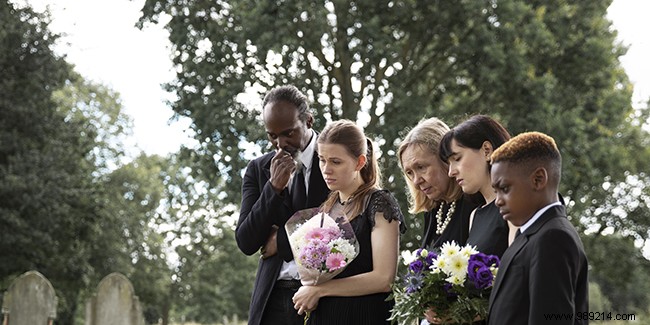
In France, the law provides a minimum framework for inheritance rules. It introduced, for example, the concept of forced heirs, i.e. a type of heir who necessarily receives part of the property of a deceased person with whom they have close ties, children and spouses especially. Then, the rules and shares of inheritance differ depending on whether we are in the presence of a will drawn up during his lifetime by the deceased, or not.
Following his death, a person who has not drawn up a will during his lifetime to determine in particular who will inherit his property and in what proportion, it is the law which defines who are his heirs, giving them an order of priority . In this case, we speak of "legal devolution".
Thus, the heirs defined by law, listed in order of priority, are:
If the heirs ranked first are those who receive the estate of the deceased, the following heirs are automatically excluded from the inheritance.
In the absence of a will, and if the deceased was married, his spouse nevertheless inherits in all cases. The share of the estate that goes to him depends on the type of marriage contract (community reduced to acquests or marriage contract) and whether or not there are children. This rule does not apply to ex-spouses, Pacs partners, or cohabitants.
If the law defines who are the heirs in order of priority in the absence of a will, the share of the estate they inherit depends on the presence or absence of children.
If the deceased was married and had children from this marriage, it is his children and his spouse who inherit. The latter has priority and can choose between 2 options:either the usufruct of the entire estate, that is to say the right to use the goods received and to collect the income without being the owner, or full ownership (usufruct plus full ownership of the property) of one quarter of the estate.
Depending on the option chosen by the spouse of the deceased, the share of the estate devolved to the children differs. In the case of usufruct, they inherit the bare ownership of the entire estate (for example, they can sell the goods received but not use them or collect income from them). If the spouse of the deceased opts for full ownership of 1/4 of the estate, the children of the deceased inherit full ownership of ¾ of the estate. This last situation applies automatically if the deceased leaves children from another union.
Another case in the presence of children:if the deceased had children without being married, it is the latter who inherit his property, in equal shares. The spouse has no rights to the estate.
Without a will and if the deceased was married but had no children, his estate is divided differently depending on whether his parents are still alive or not.
If both parents are deceased, the spouse of the deceased inherits all the property. If one of his parents is still alive, he inherits 1/4 of the estate and his spouse the remaining ¾. When both parents of the deceased are alive, his property is divided equally between them and his spouse.
By writing a will while you are alive, you have the ability to determine the future distribution of your assets after your death. Despite everything, you cannot do anything because the law has provided safeguards for the division of an estate.
Thus, certain heirs cannot be excluded from a succession. These are the children of the deceased and their descendants, or the spouse if the deceased had no children, the heirs known as the "reserved heirs". The latter must receive a share of the estate called the "hereditary reserve".
This hereditary reserve represents only part of the inheritance. The rest of the estate, called the "disposable quota", is the part that a person who writes a will can distribute among heirs that he chooses freely.
If the deceased wrote a will during his lifetime and had children, the latter (the reserved heirs) systematically receive a share of the estate (the hereditary reserve) according to the following terms:half of the assets for 1 child; 2/3 of the property for 2 children; and ¾ of the goods for 3 or more children.
The remainder of the estate (the disposable portion) is shared freely in the will that has been drawn up.
In the presence of a will, if the deceased was married but had no children, his spouse must receive a share of the estate on the death of the latter as the compulsory heir. His share of the inheritance is equal to a quarter of the assets of the deceased.
The remaining ¾ of the estate represent the available portion that can be shared as desired in a will.